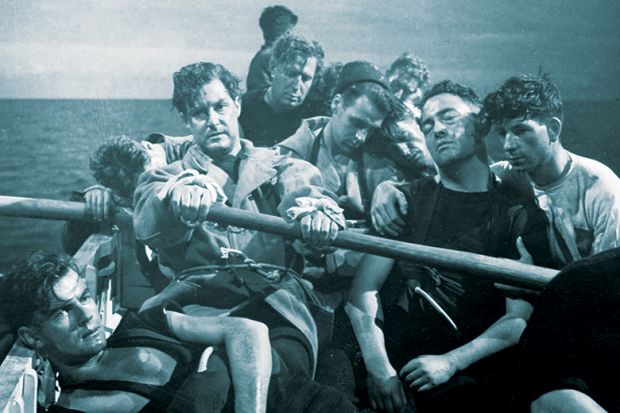The coronavirus pandemic is giving US university researchers broad new authority and acclaim in public emergency response as government leaders prove too slow and politicised to meet basic informational needs.
While the Trump administration regularly dismisses the pandemic as an election-year distraction, even as the national death toll races towards 200,000, academic scientists have been filling critical gaps in data and guidance.
The best-known example is Johns Hopkins University and its Covid-19 Dashboard, now recognised globally as the leading collection of statistics on the spread of the disease.
Others include the University of Washington, the University of Virginia and Harvard University, whose compilations and syntheses cover data on hospitalisation and testing rates, equipment needs and more.
The work reflects both skills gained in past public health emergencies and a spontaneous reaction by researchers seeing nobody else moving at the speed of a virus that has claimed more than 900,000 lives worldwide.
“We pivoted into this when it happened because we were all ready for it,” said Christopher Barrett, a professor of computer science at Virginia who leads its Biocomplexity Institute, a 20-year-old commitment to understanding massive interactions that affect human health.
“Universities and other groups have come into play in order to fill a gap…” said Ali Mokdad, a professor of global health at Washington who spent 20 years at the US Centers for Disease Control and Prevention.
Scientists at Johns Hopkins began their online map of infection and death rates in the very early days of the pandemic when Ensheng Dong, a doctoral student in civil and systems engineering, began worrying about his family back home near the outbreak’s origins in China.
Using his skills in geography and mapping, he began working with colleagues to compile all available data into a live website that policymakers, journalists and others quickly grew to recognise as invaluable.
The University of Washington’s Institute for Health Metrics and Evaluation, using the Johns Hopkins data, became an authority in providing projections on the overall growth of the pandemic.
Virginia’s Biocomplexity Institute created its own online dashboard, aimed initially at calculating hospital occupancy numbers to help direct the allocation of scarce medical supplies and capabilities.
Harvard’s School of Public Health is applying social science expertise, collecting data on what people think about the pandemic with an eye towards developing strategies based on human perceptions and behaviours.
The federal response, meanwhile, has been increasingly trapped by political interference. The most visible government health expert, the renowned infectious disease specialist Anthony Fauci of the National Institutes of Health, has been sidelined by the Trump administration after repeatedly urging aggressive strategies to slow the spread of Covid.
Experts are describing similar experiences with the Centers for Disease Control and Prevention, most recently with the CDC’s announcement downplaying the importance of testing people for infection – in direct contravention to clear scientific advice.
Such developments are troubling for overall public health and for the academic scientists trying to improve it, said Professor Mokdad, who at the CDC led the world’s largest standardised telephone survey, aimed at understanding behavioural risk factors in human health.
In an ideal environment, Professor Mokdad said, government agencies such as the CDC would identify health needs, find academic partners with the expertise to develop solutions, and collect and permanently store the data and findings.
But universities were being forced to handle much more of that overall process, with many outside experts not even trusting the government to accurately handle data, Professor Mokdad said.
“It’s so sad to see Hopkins or the University of Washington doing this kind of work,” he said. “I would love CDC to do it, but they have to get their act together, unfortunately.”
The political problems come on top of more long-standing issues – pre-dating the Trump administration – about the government’s quickness and adaptability, said Phuong Pham, an assistant professor in Harvard’s T. H. Chan School of Public Health and director of evaluation and implementation science at the Harvard Humanitarian Initiative.
She said her team at Harvard was just finishing a study of Ebola in the Democratic Republic of the Congo – looking at the ways that domestic conflict and an upcoming election complicated efforts to fight the disease – when Covid-19 began spreading globally.
Seeing similar political stresses in 2020 in the US, her team redeployed its existing volunteer network and, without any outside funding, began surveys aimed at understanding how best to handle the likelihood of public resistance to cooperative disease-fighting campaigns.
Some scientists within the CDC “loved the idea”, but simply could not arrange funding quickly enough, Dr Pham said. That failure did not necessarily reflect a lack of political will, but bigger-picture structural obstacles to helping academic scientists move quickly in a time of dire national need, she said.
When it works well, the government-academic partnership can make a real and positive difference, said Madhav Marathe, a professor of computer science at Virginia who leads the Biocomplexity Institute’s advanced computing division.
During the Ebola scare in the US in 2014, Professor Marathe said, the Biocomplexity Institute helped federal agencies determine potential placements of emergency treatment units.
For Covid, he said, the institute recommended creating smaller mobile medical units that could respond to sudden disease outbreaks. Instead, policymakers pursued projects such as a 2,500-bed temporary hospital in New York City’s Javits Convention Center. That, he noted, remained largely empty.
POSTSCRIPT:
Print headline: Academics rise above static on official Covid channels
Register to continue
Why register?
- Registration is free and only takes a moment
- Once registered, you can read 3 articles a month
- Sign up for our newsletter
Subscribe
Or subscribe for unlimited access to:
- Unlimited access to news, views, insights & reviews
- Digital editions
- Digital access to THE’s university and college rankings analysis
Already registered or a current subscriber? Login








